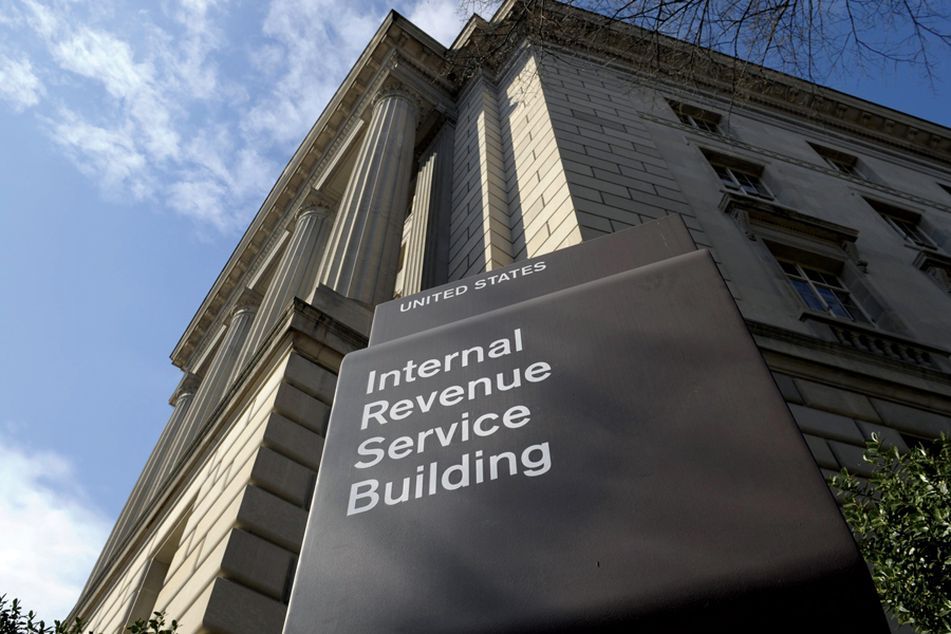IRS blocks New York, New Jersey plans to elude cap on SALT deduction

States' strategies of characterizing property taxes as charitable contributions won't fly, agency says.
The Internal Revenue Service put the tri-state area on notice: The charitable workarounds that New York, New Jersey and Connecticut approved in response to the new federal cap on deductions for state and local taxes aren’t acceptable to the federal government.
Taxpayers who itemize will only be eligible for a federal deduction that’s a small fraction of their charitable donations for property tax payments, according to proposed regulations published in the Federal Register Thursday. The charitable contribution strategies in high-tax states were created so taxpayers would be able to write off the full donation amount from their federal taxes.
The Treasury Department regulations say taxpayers can receive a federal tax write-off equal to the difference between the state tax credits they get and their charitable donations. That means a New Jersey taxpayer who makes a $30,000 charitable donation to pay property taxes and receives a $27,000 state tax credit would only be able to write off $3,000 on a federal tax bill.
“Congress limited the deduction for state and local taxes that predominantly benefited high-income earners to help pay for major tax cuts for American families,” Treasury Secretary Steven Mnuchin said in a statement. “The proposed rule will uphold that limitation by preventing attempts to convert tax payments into charitable contributions.”
Last year’s tax overhaul created a $10,000 limit for state and local tax deductions, a pittance for Northeastern states that have high property taxes. New York Gov. Andrew Cuomo and New Jersey Gov. Phil Murphy signed legislation allowing local governments to set up charitable organizations to accept property tax payments. In turn, homeowners receive credits for those donations to offset federal taxable income.
New Jersey gives taxpayers a 90% state tax credit for donations made to local municipalities, counties and school districts. Under the IRS proposal, only 10% of the donation amount would now be eligible for a federal tax break. New York provides an 85% state credit.
Connecticut approved similar legislation and one of three California bills to allow taxpayers to make charitable contributions has advanced through its first Assembly committee.
The Treasury rules provide some leeway for states that provide credits of 15% or less of the donation amount. In those cases, taxpayers can deduct the full charitable contribution on their federal taxes.
Municipalities had been awaiting IRS guidance before creating the charitable funds. The IRS had warned taxpayers in May to proceed with caution after the states approved the maneuvers involving charitable organizations to circumvent the new federal limits. The rules released Thursday are likely to be contested by those states.
“I have no doubt this is going to get challenged,” Stu Gibson, a tax litigator with law firm Schiff Hardin, said before the regulations were released. “State legislatures are being very creative in how they approach this.”
(More: Move to Florida to pay zero state personal tax? Fuggedaboutit!)
School Voucher Programs
Mr. Cuomo is also spearheading a lawsuit by four states to have the so-called SALT cap struck down. He’s said the state is “ready to fight if the IRS takes hasty and politically motivated action” against New York’s efforts to avoid the deduction cap.
New York, New Jersey, Connecticut and Maryland sued the Trump administration in July saying the new cap unfairly targets them. The states claim the tax law overturned more than 150 years of precedent. The state and local tax deduction is essential to prevent federal tax powers from interfering with constitutionally guaranteed state rights, according to the lawsuit. Legal experts have said the suit has little chance of success.
Treasury faced a complex task in creating regulations that block the new SALT workaround proposals while taking into account existing programs in states such as Georgia and Alabama that give donors credits for making contributions to hospitals and schools. More than 30 states have programs that give taxpayers breaks for charitable donations.
Under the Treasury proposal, school voucher programs will largely be unaffected because the donations aren’t made in lieu of tax payments and are considered legitimate charitable contributions. The government hasn’t sought to regulate those programs because they don’t affect how much tax revenue the IRS collects, a Treasury official said in a phone call with reporters.
‘We appreciate the value of state tax credit programs, particularly school choice initiatives,” Mr. Mnuchin said in the statement. “We believe the proposed rule will have no impact on federal tax benefits for donations to school choice programs for about 99 percent of taxpayers compared to prior law.”
(More: Homeowners looking to dodge property tax caps turn to Alaskan trusts)
Learn more about reprints and licensing for this article.








